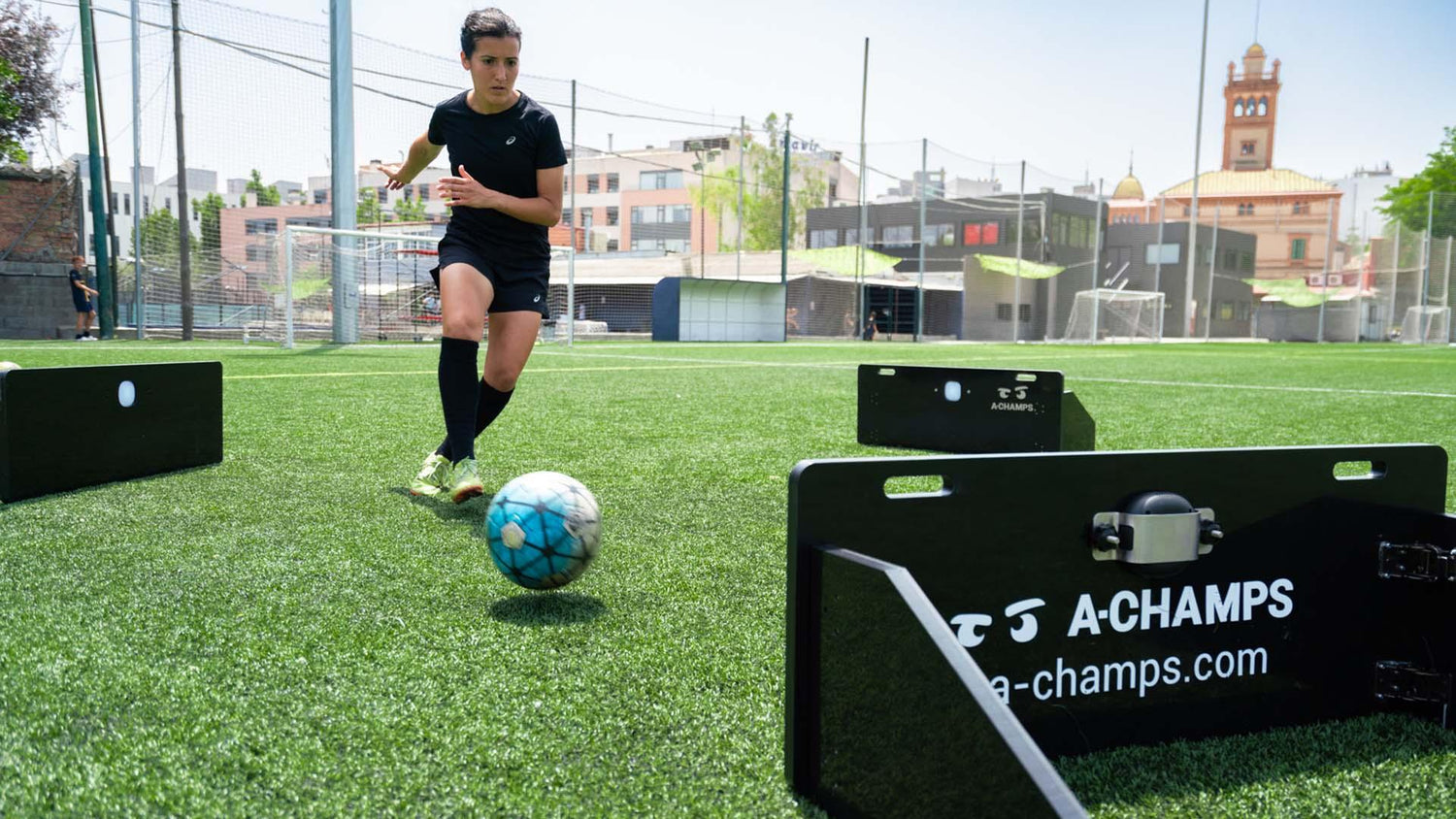In Soccer, Decisions Aren’t Made Just with the Feet —They’re Made with the Brain
In every match, players must process a constant stream of visual and spatial information to make split-second decisions. From selecting the best passing lane to choosing whether to press or drop back, soccer decision-making directly impacts the flow and outcome of a game.
In fact, soccer IQ—the ability to make fast, intelligent decisions—is often what separates good players from great ones.
According to a study by the University of Portsmouth, elite players engage in a high volume of decision-making under pressure, and their ability to anticipate and act quickly plays a critical role in performance.
If you want to experience what elite decision-making feels like, explore the A-Champs ROXPro Training Set, a tool designed to train perception, reaction, and execution all at once.
Why Soccer Decision-Making Is So Important
Every pass, run, or movement on the pitch begins with a decision. A player must:
- Assess the positioning of teammates and opponents
- Predict the next movement of the game
- Choose the highest-value option quickly
Whether you're playing on or off the ball, decision-making influences positioning, passing accuracy, ball control, and even player confidence.
“Elite decision-makers don’t just play the game—they control it.” — The English FA Boot Room
Core Skills for Smarter Soccer Decisions
To improve soccer decision-making, players must focus on both cognitive and technical development. Here are the four most critical components:
1. Field Scanning
Keeping your head up and scanning the field allows you to identify available options and anticipate threats. Research in the Frontiers in Psychology Journal shows that improved scanning frequency leads to faster, more accurate play in athletes of all levels.
2. Analyzing Options Quickly
Good players process multiple options rapidly and choose the most effective one in real time. Try using the A-Champs ROXPro Training Set to simulate pressure environments that force you to choose quickly.
3. Body Positioning
Proper posture allows players to shield the ball, increase passing angles, and make quicker transitions.
4. Precision Passing
Great decisions must be executed well. A pass that reaches its target consistently turns good decision-making into results.

Soccer Drills to Improve Decision-Making
Improving soccer IQ requires repetitions, realistic scenarios, and cognitive load. That’s where A-Champs technology helps.
A-Champs ROX System
- Reaction Training: Players react to unpredictable cues, forcing real-time decision-making under physical stress.
- Multi-sensory Learning: Engages the brain more deeply than traditional drills.
- Mobile Progress Tracking: Use the A-Champs app to measure reaction time and decision accuracy over time.
Rebounder-Based Decision Drills
The A-Champs Rebounder integrates with ROX to simulate real-game passing options, helping players:
- Scan and decide who to “pass” to
- Adapt decisions based on light cues
- Reinforce decision accuracy with repetition
External studies such as Frontiers in Psychology’s research on perceptual-cognitive expertise reinforce the importance of integrating perception and decision-making training for faster, more effective play.
The Science Behind It
Scientific evidence shows that perceptual-cognitive training improves neural efficiency and reduces decision latency during high-pressure play.
A-Champs merges cognitive science and sports technology, making the brain as trainable as the body.
For more insights, explore our Science Behind Training page.
Final Takeaway
The smartest players win — not just the fastest.
By integrating decision-making drills with cognitive tools like the A-Champs ROXPro System, athletes can accelerate their reaction time, sharpen awareness, and make smarter decisions in every match.
Start building your soccer IQ today and experience the difference in your next game.
Explore A-Champs Soccer Training Solutions
FAQ: Soccer Decision-Making & Cognitive Training
Q: What is soccer IQ?
A: Soccer IQ refers to a player’s ability to perceive, process, and respond to game situations quickly and effectively.
Q: Can decision-making be trained?
A: Yes. With the right drills and cognitive tools like A-Champs ROX, players can train the mental processes that underpin fast and accurate decisions.
Q: How often should I train decision-making?
A: Two to three focused sessions per week can already produce measurable improvement in perception, anticipation, and decision speed.





Leave a comment
This site is protected by hCaptcha and the hCaptcha Privacy Policy and Terms of Service apply.